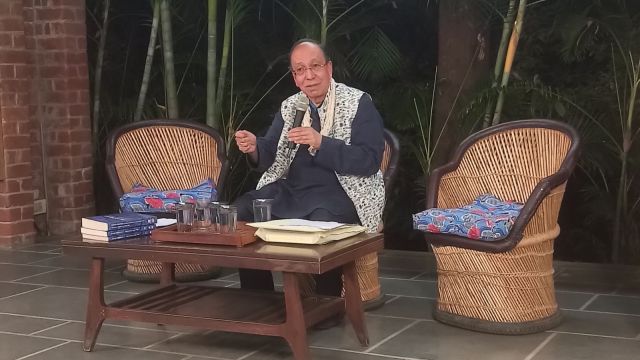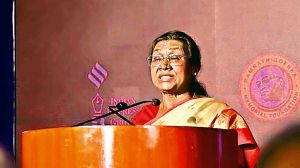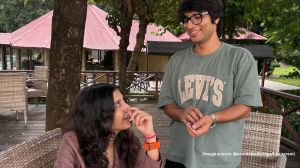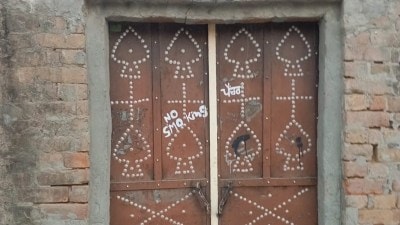BNSS a renumbering, translation of earlier criminal code, says Prof Sugata Bose
On July 1 last year, the Centre replaced colonial era IPC, CrPC and the Indian Evidence Act with the Bharatiya Nyaya Sanhita, Bharatiya Nagrik Suraksha Sanhita and Bharatiya Sankshya Adhiniyam.
 Terming the Jammu and Kashmir Reorganisation Act, 2019 "an assault on the federalism of India", Prof Bose advocated for the need to strengthen the federal features of the Indian Constitution.
Terming the Jammu and Kashmir Reorganisation Act, 2019 "an assault on the federalism of India", Prof Bose advocated for the need to strengthen the federal features of the Indian Constitution.The recently introduced Bharatiya Nagrik Suraksha Sanhita is only a renumbering and translation of earlier clauses into ‘Sanskritik Hindi’, Sugata Bose, a Gardiner Professor of History at Harvard University and grandnephew of Subhas Chandra Bose, said in Ahmedabad Tuesday.
Further, he said citizens should be wary of what is being claimed as decolonisation as the idea is being appropriated in India. “Therefore, let us say the recent revisions that have been carried out to the Criminal Procedure Code. Now, that was colonial. It needed to be decolonised. I myself when I was in Parliament (Bose is a former TMC MP) and argued strongly for the repeal, or shall we say, the decolonisation of the law on sedition. If Britain could have done that, why should we keep a British law on sedition on our statute books,” he said after delivering a lecture on ‘Mahatma, Netaji, and Indian Anti-Colonial Constitutionalism’ at the Gandhi Ashram.
On July 1 last year, the Centre replaced colonial era IPC, CrPC and the Indian Evidence Act with the Bharatiya Nyaya Sanhita, Bharatiya Nagrik Suraksha Sanhita and Bharatiya Sankshya Adhiniyam. “But unfortunately, all that has happened is that a certain degree of renumbering has taken place of clauses and the same code, basically, has been simply translated into ‘Sanskritic Hindi’ and is being presented as if it is part of a process of decolonisation,” Prof Bose lamented.
He added, “Therefore, always be very careful about what is being claimed as colonisation… There is a need for decolonisation, but much that passes for decolonisation may not actually be so”.
Terming the Jammu and Kashmir Reorganisation Act, 2019 “an assault on the federalism of India”, Prof Bose advocated for the need to strengthen the federal features of the Indian Constitution. “We need to bolster the federal features of our state and polity. That is the need of the hour… Let us therefore craft our Constitution on the basis of Swaraj that Netaji Subhas Chandra Bose had called for more than a 100 years ago.”
‘Visva-Bharati revival a difficult task’
At another event at Gujarat Vishwakosh Bhavan, Prof Bose said that while reviving and rejuvenating Visva-Bharati would definitely be a step in the right direction, it seems a very difficult task to achieve under the current circumstances.
Rabindranath Tagore founded Visva-Bharati University at Shantiniketan in West Bengal as an alternative to the colonial education system. It was established in phases and eventually became a central university in 1951.
“Tagore had been very worried about the future of Visva-Bharati. That is why he had reached out to Mahatma Gandhi, Jawaharlal Nehru and Subhash Chandra Bose. He was pleading with them to take care of this institution. Once he had passed from the scene, and of course, we lost Bose in 1945 and Gandhi in 1948,” Prof Bose said.
“Though Nehru tried, the method that he adopted as a central university, unfortunately, within that structure, I at least in the short term, don’t see a way forward. Things were terrible in the Visva-Bharati in the last few years. There is a short period when the atmosphere seems to be a little better, but we really don’t know,” he added.







